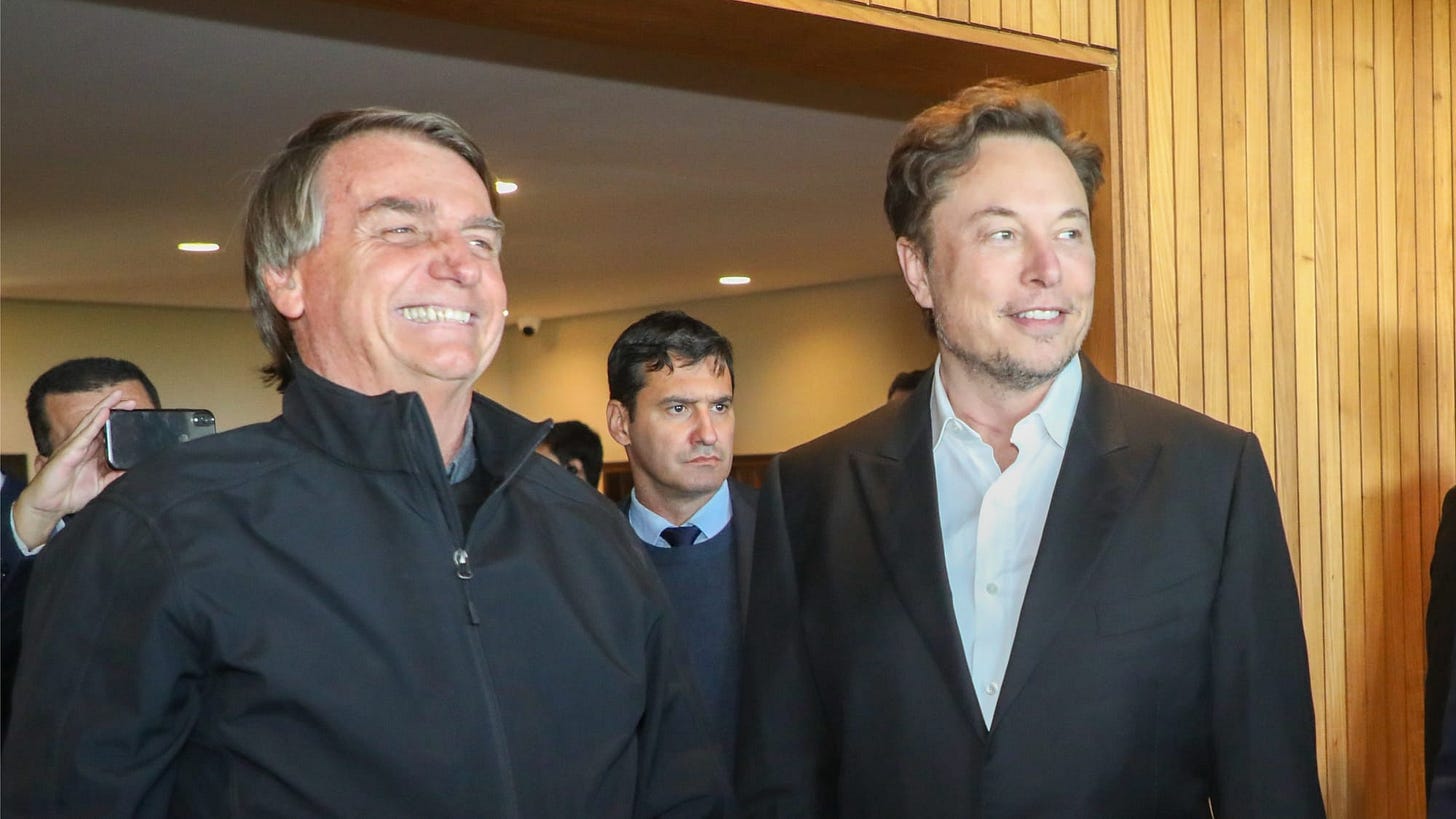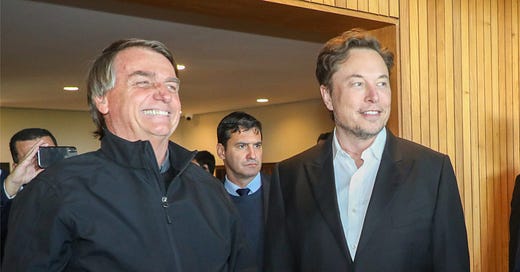Roundup: Elon Musk caves to Brazil’s Supreme Court
Read to the end for the backlash against NEOM influencers

Elon Musk has spent the past few months vocally defying the orders of Brazilian Supreme Court Justice Alexandre de Moraes, claiming they were a violation of his “free speech” values (even though he’d taken similar actions in India, Turkey, and other countries). Well, now Musk has gone silent on Brazil as his lawyers have told the country they’re ready to comply so the suspension of Twitter/X can be lifted.
Earlier this week, Brazilian media began reporting that Twitter/X’s lawyers said the company had banned the requested accounts and paid the fines levied against the company by the court. Soon after, media began reporting Twitter/X had appointed a legal representative in the country, which was ultimately the infraction that led to the platform’s suspension.
There’s no question this is a substantial loss of face for Musk, though it will likely have few tangible consequences beyond some Brazilian users not returning to his platform if the media doesn’t make him wear it and other countries don’t have the courage to crack down on him in the way Brazil did. No one — not Elon Musk or any other tech billionaire — should have, or even feel they have, the power to defy the will of a democratic government when they’re taking actions to protect their society from the harms created by major tech companies.
I’m thrilled to see Brazil has prevailed, and look forward to its continued efforts to promote digital sovereignty and carve out a digital path that works for the people of Brazil. My hope is that it can fit into a broader movement of countries and organizations collaborating toward a vision for the digital future that charts a very different path than the one being sold to us by Silicon Valley or by Shenzhen.
Now we wait and see if Brazil goes after Starlink next.
This week in the roundup, find some recommended reads on data center emissions, a piece on the libertarian vision of internet politics, and what Israel’s terrorist attack in Lebanon means for trust in electronics supply chains. Plus, a ton of labor updates this week, along with other tech news you might have missed.
Over on Tech Won’t Save Us, I spoke with Rob Larson about the recent US ruling that Google is a monopolist and what it will actually mean for the company. We agreed the ongoing trial over its ad business — rather than the one over its search monopoly — is likely to yield more significant actions against its business.
I signed on to an open letter backing Brazil’s fight against Elon Musk and supporting the broader effort for digital sovereignty. You can read the letter, see the other signatories, and add your name here.
I also appeared on Canadaland’s Short Cuts podcast with guest host Justin Ling twice this week. On the Friday episode, we recorded a segment talking about how Canada continues to send arms to Israel, but after the fact checking was complete on it, publisher Jesse Brown intervened to remove three statements I’d made talking about how Israel continues to bomb and kill people in Gaza, how many people are calling its actions a genocide, and comparing the praise for former prime minister Brian Mulroney’s decision to end support for apartheid South Africa before the US and UK to our government’s shameful continued support for Israel today.
Brown restored one of those statements after publication — the one about Israel committing genocide — but only after I’d rerecorded it to specifically identify some people or groups making that charge. By that point, the damage was done and Canadaland’s credibility had been further sullied by his actions. Brown claims the additional specificity was necessary, as though the charge of genocide against Israel is obscure; Ling and Canadaland’s fact checkers did not agree. Brown did not offer to restore the other two statements he cut about Israel killing people in Gaza or the comparison to apartheid South Africa.
I posted about what happened on Twitter/X and Bluesky if you want more information. Ling also wrote a statement of his own on his newsletter, explaining how he opposed the edits and told Canadaland he’ll no longer work with them again after what Brown had done. Brown has tried to smear us both on Twitter/X since then, claiming I was using “Trump speak” and Ling only opposed him so he could promote his newsletter. Every petty post Brown makes to try to defend his overreach only further harms the reputation Canadaland spent years building.
Have a great week!
— Paris
Keep reading with a 7-day free trial
Subscribe to Disconnect to keep reading this post and get 7 days of free access to the full post archives.




